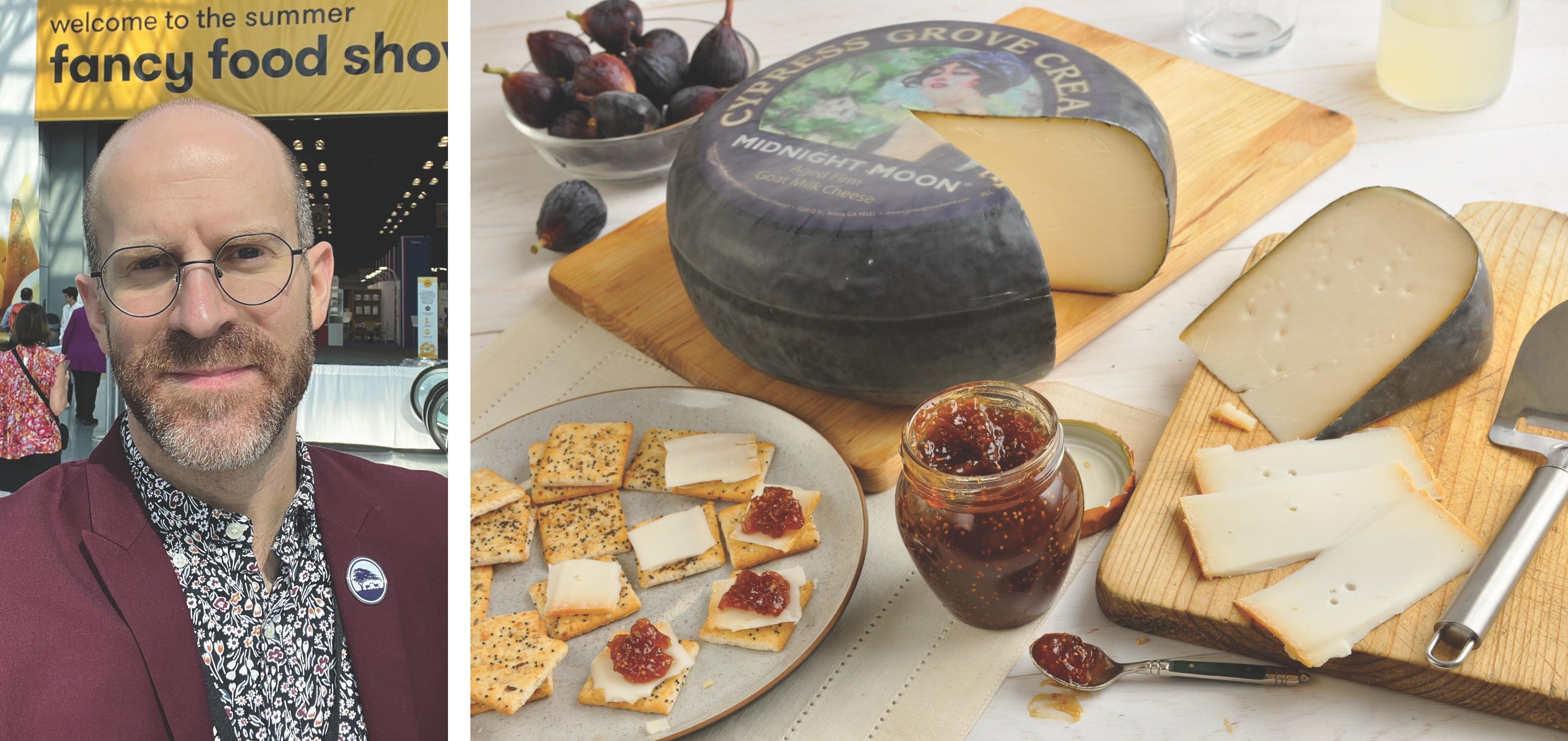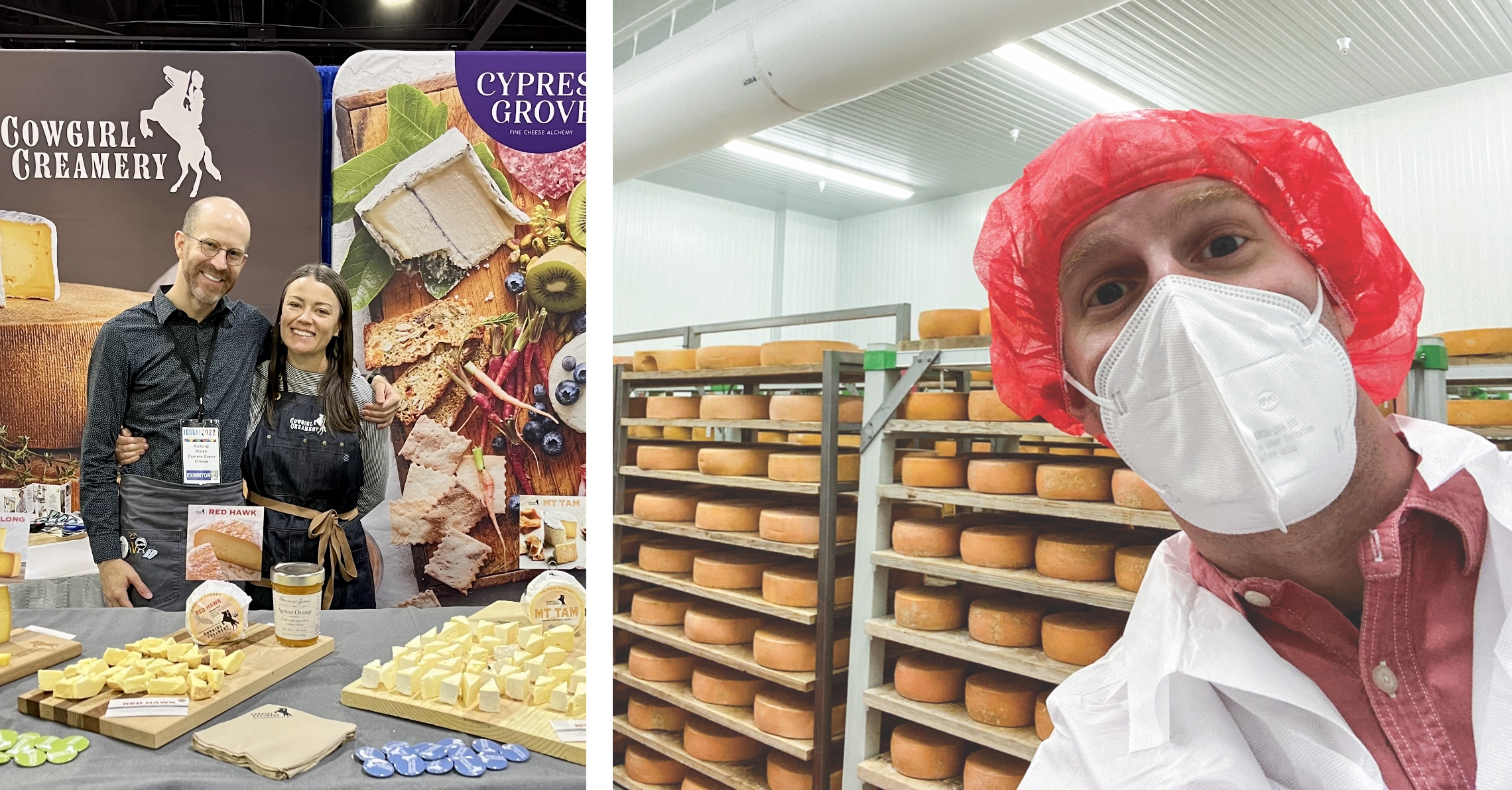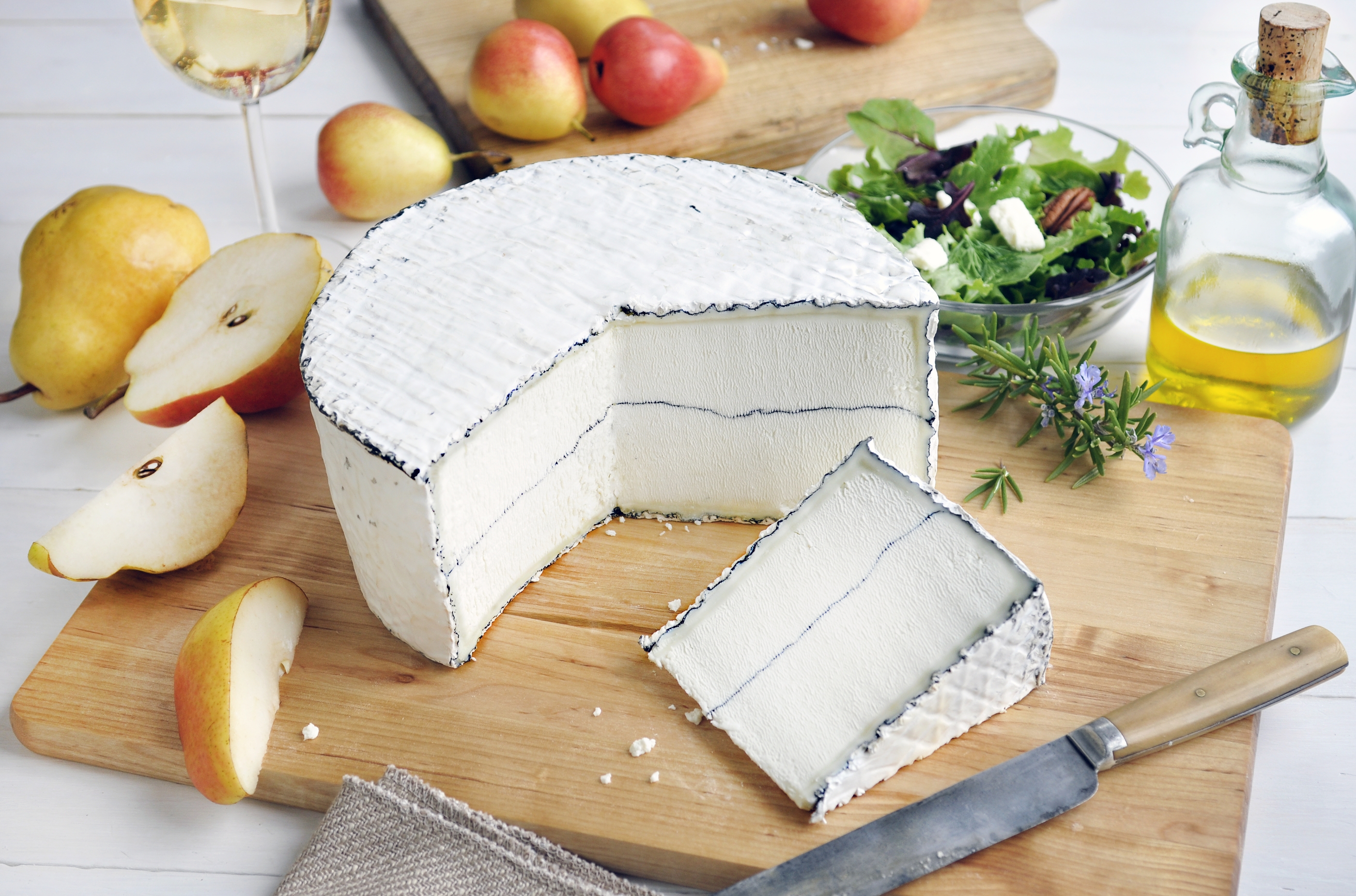Three years into the job, a friend he made at Spannocchia told him about a new role opening up at Cypress Grove. There, he found a company with a rich history and a modern dairy that serves as a model for the growing goat industry in the U.S. — as well as a welcoming food community.
“The people in this industry — from olive importers to pastry chefs to numerous hardworking cheesemakers and cheesemongers — generally share an admiration for and genuine interest in each other. There’s competition, but there’s also camaraderie,” he says.
WHEEL LIFE AS REAL LIFE
Walsh works remotely from his home in Washington, D.C., but also travels frequently to the dairy in California and around the country for his work, with a focus on the Southeast. Though it can be tiring, he’s glad to be back on the road now that pandemic-related travel restrictions have eased. Still, supply chain issues linger and keep him on his toes.
“The food industry — like many industries — was turned on its head during the pandemic. Specialty food, especially highly perishable cheeses that require specific care throughout the supply chain, can face disruptions that lead to delays in delivery, spoiled product and frustrated customers. It’s up to a sales manager to handle those issues when they arise,” he says.
His coursework at William & Mary showed him how to think critically, solve problems and actively listen, while the rigor showed him what he was capable of, he says.
“But more than anything, the people I met there continue to be some of my closest friends; they have helped me more than words can express,” he says, discussing his college roommate Julian Brown ’10 and first roommate in D.C., Sara Grant ’10. “We have supported each other through numerous job and career shifts, adventures, moves, relationships, ups and downs.”
William & Mary gave him not only a strong network in D.C., but also a better understanding of himself. He cites his freshman seminar with Kathleen Slevin, a sociology course called “Identity and Society,” in shaping his understanding of how race, class, gender and sexuality intersect and helping him embrace his identity as a gay man. Completing the Semester at Sea study abroad program introduced him to the wonders of travel and exploring new cultures (and led him to his dear friend Grace Heusner ’10). Being a tour guide, orientation aide and senior admissions interviewer honed his storytelling skills and confirmed him as an extrovert.
“Those were probably my favorite moments on campus, helping people who would be my peers to become the best versions of themselves,” he says.
During the pandemic, he served as a facilitator for the Courageous Leadership Institute, a virtual program orchestrated by the Undergraduate Admission office that brought together high school students to develop leadership skills and encourage conversations about values.
The advice he gives students: “Get to know yourself and journal a lot. Ask for help when you need it and help others around you. It’s OK if you don’t know what to do after graduation, but don’t wait around for a perfect opportunity. Start somewhere and remain mindful to alter your path as you go.”
Changing careers to start on a completely new path required soul searching and a leap of faith, and Walsh feels fortunate to be doing something he enjoys for a company he believes in.
There are three things that helped him find direction in his life that he shares with anyone who might be feeling lost:
“1. Take the StrengthsFinder 2.0 assessment to better understand what strengths come naturally to you — then build on them;
“2. Read ‘What Color is Your Parachute?’ specifically to complete ‘The Flower’ exercise, as it will help you understand what your ideal job looks like — then seek it out;
“3. There are free 10-day silent retreats offered all over the country that teach ‘Vipassana’ meditation (see dhamma.org). A fellow alumnus, Kaveh Sadeghian ’12, told me about them years ago, and I completed one in 2016 and another in 2019. It’s changed my life and helped me to more mindfully see things the way they are.
“It’s impossible to know how things will play out,” he says. “But trust yourself. Be confident, not conceited, and embrace growth. Focus on gratitude. I’m deeply grateful for my time at William & Mary, and how it contributed to the person I’ve become.”


